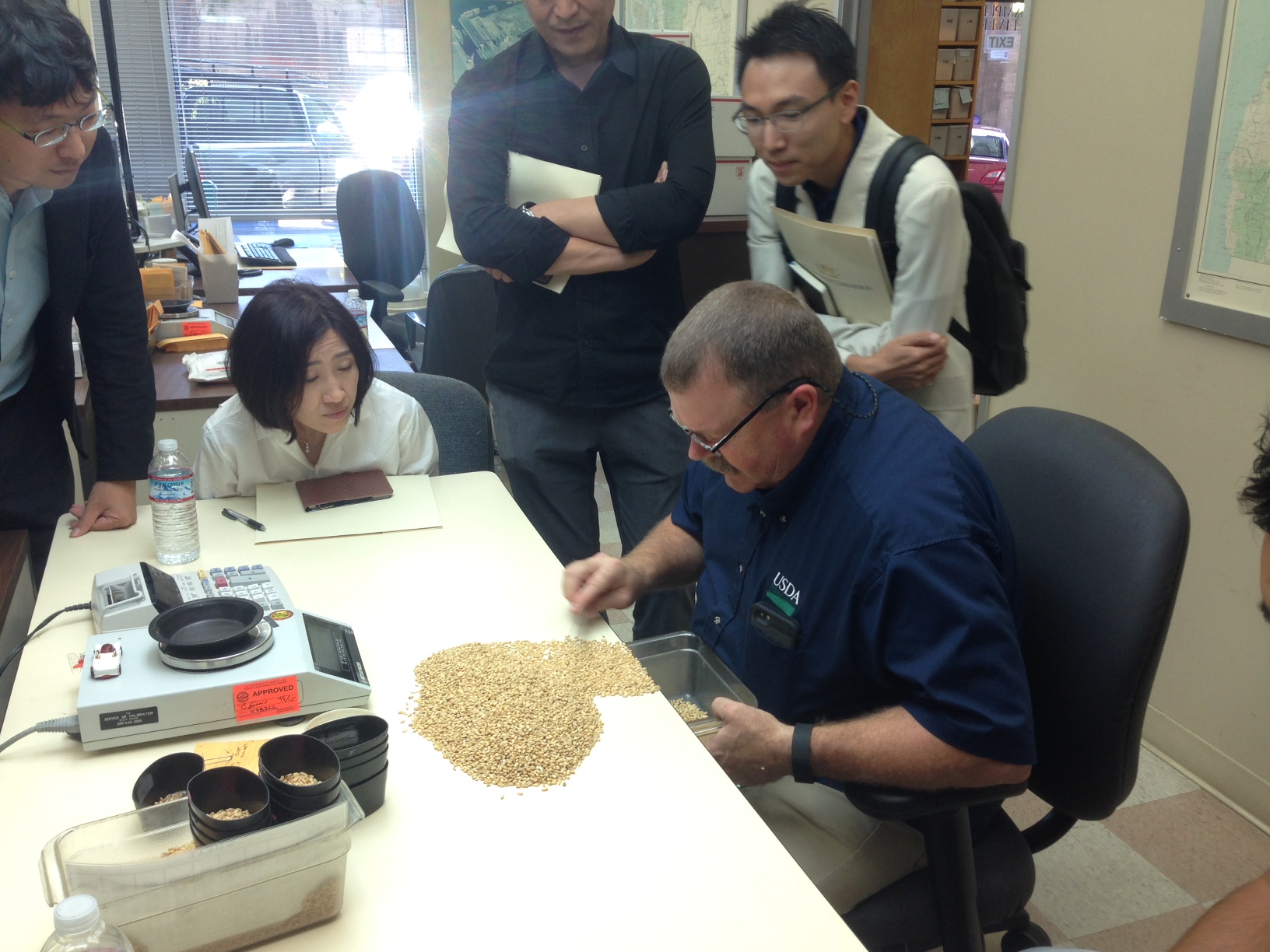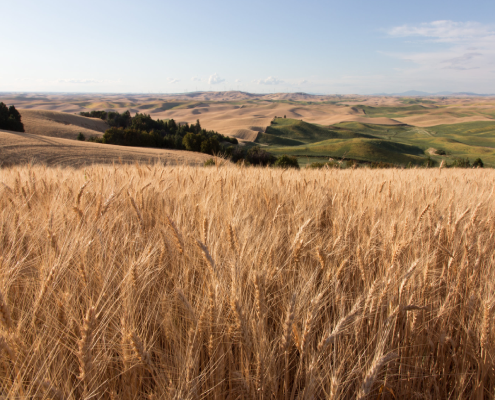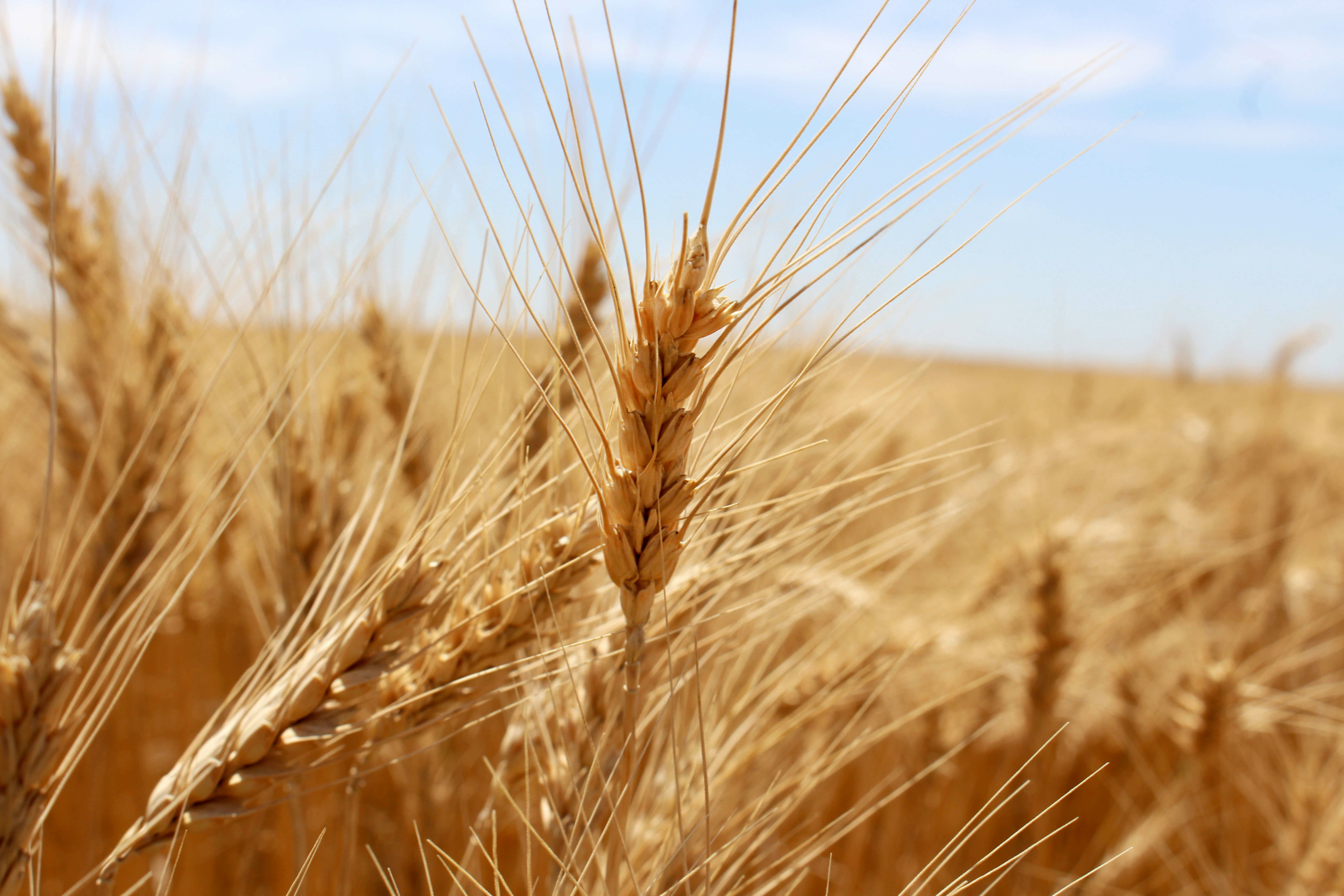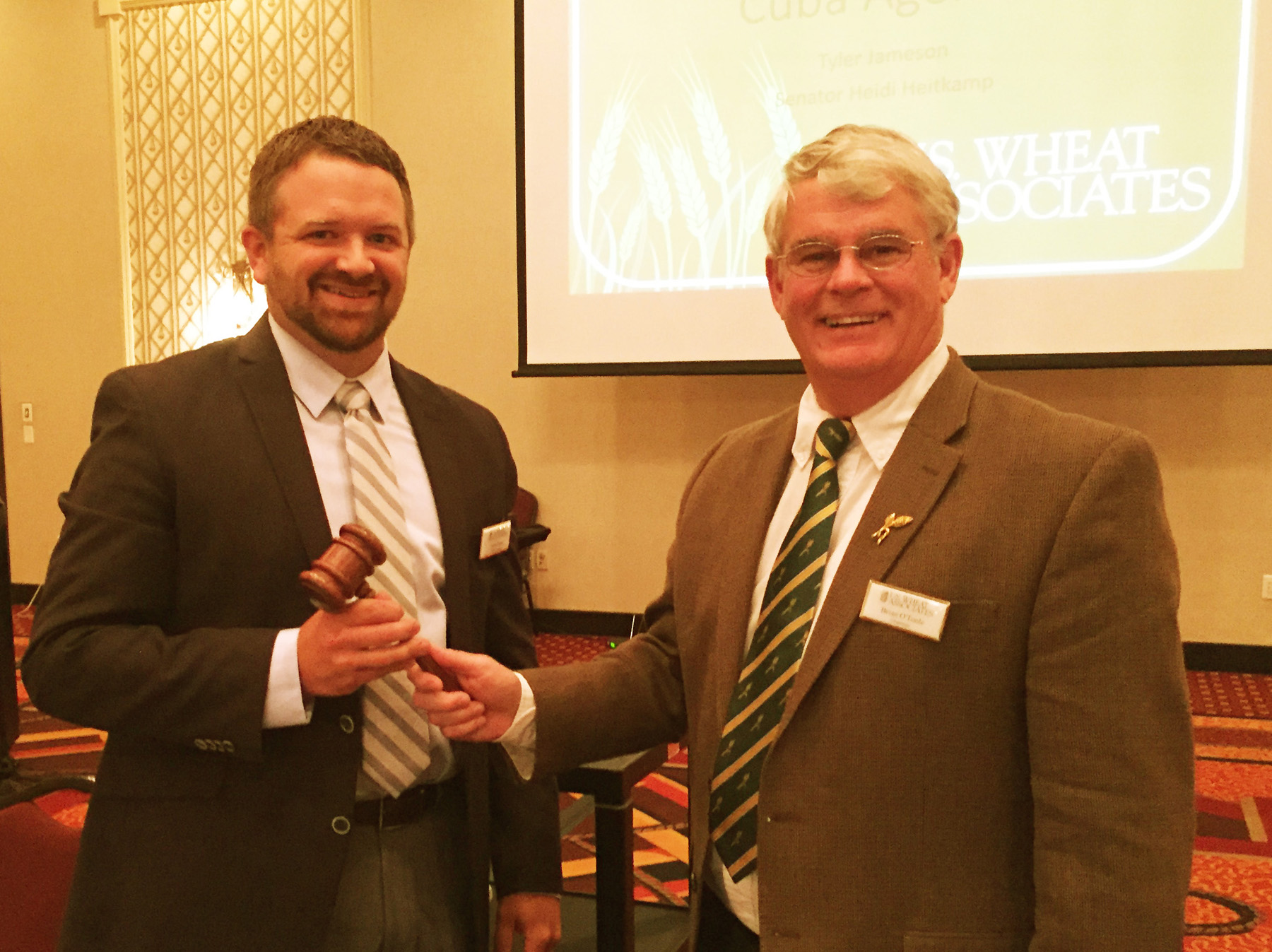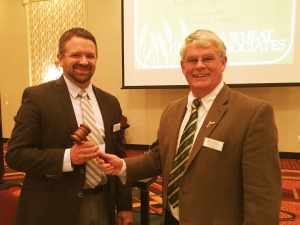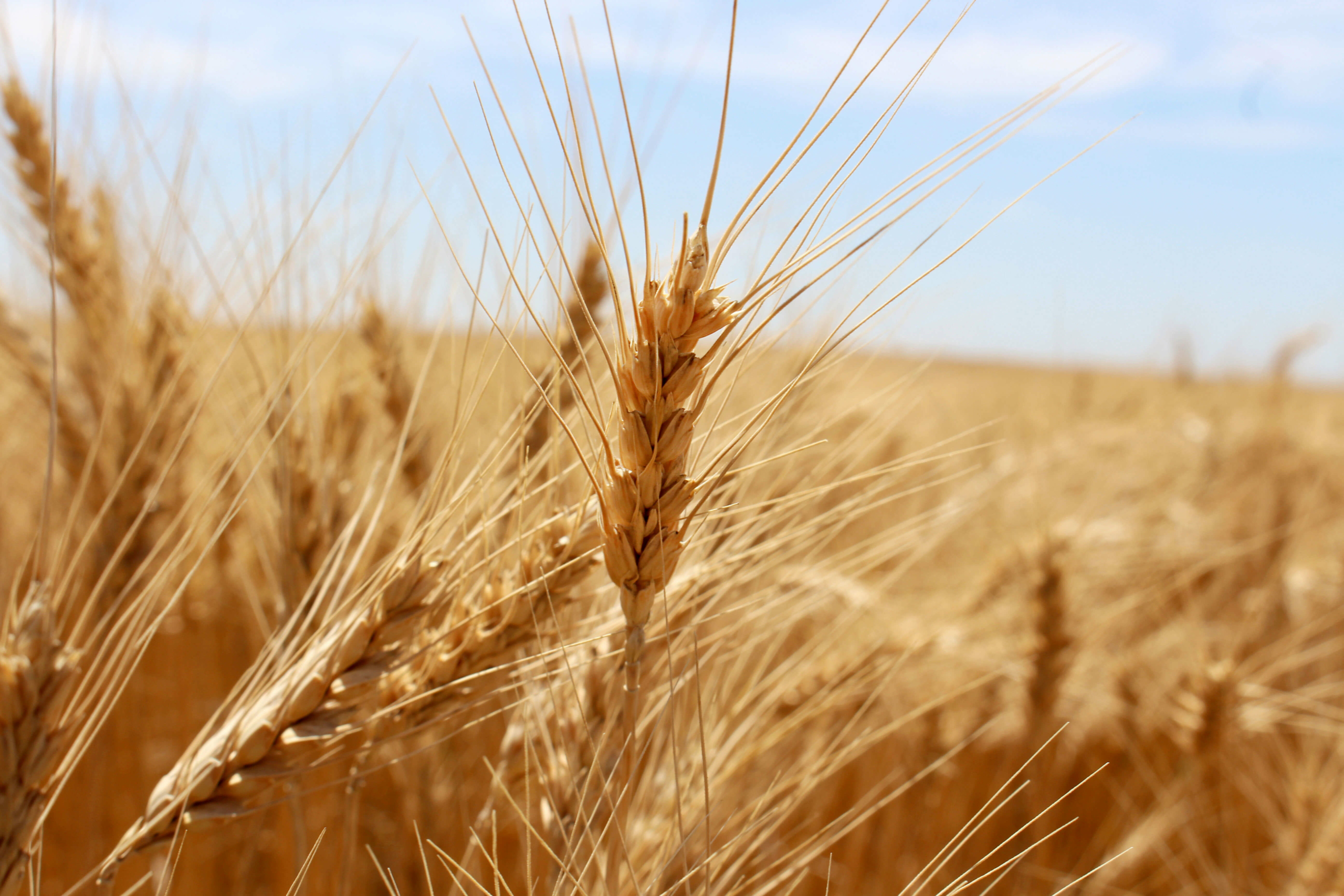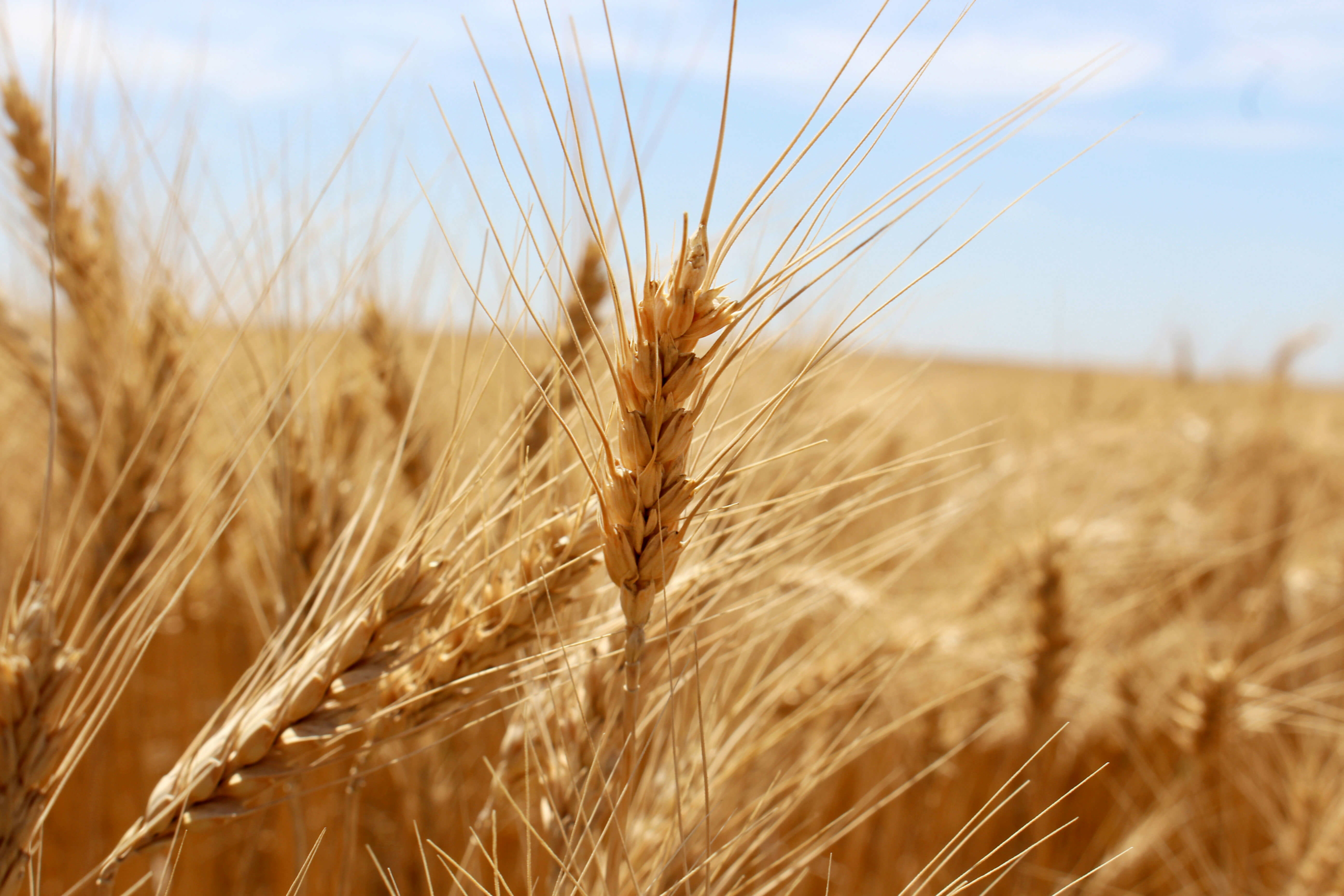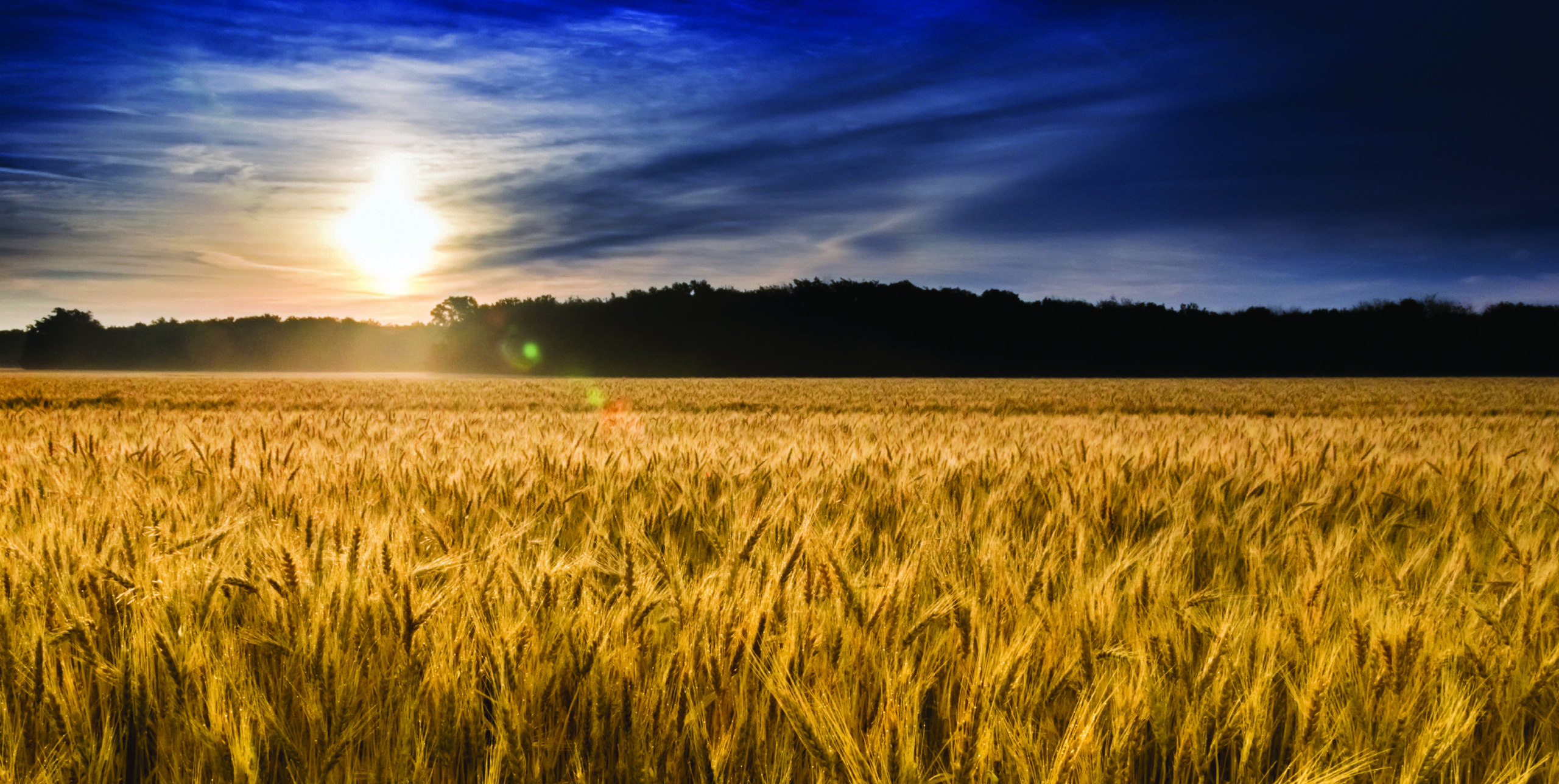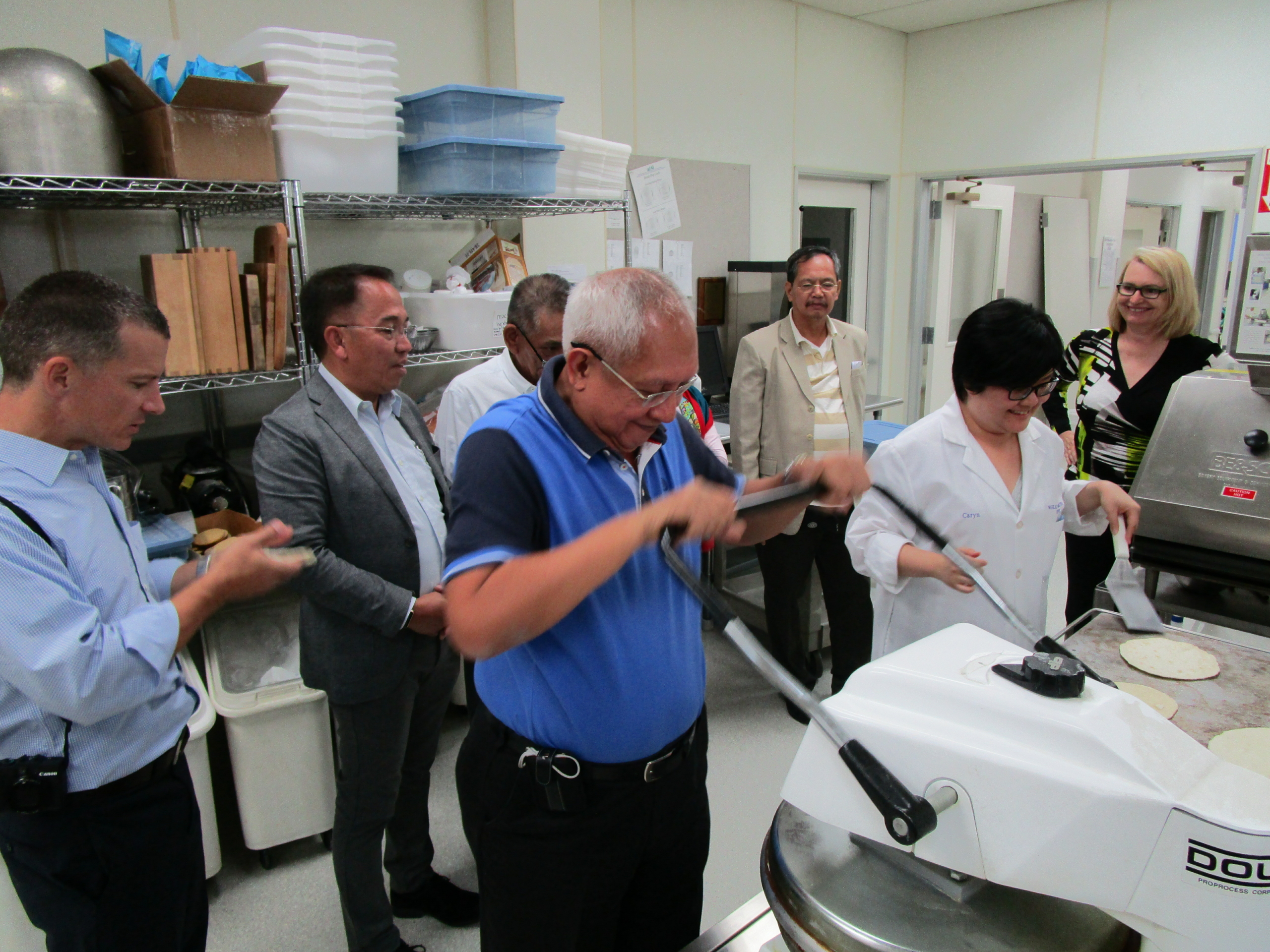For Stephanie Bryant-Erdmann, USW’s market analyst, the diversity of the wheat export market and its changes keep her job interesting. She works closely with industry partners and USW overseas staff to track the pulse of the industry, so when the opportunity to gain direct insight into customer needs and concerns by traveling with one of USW’s trade teams from Colombia — she took it.
“Trade teams provide a unique opportunity to see the interaction between U.S. exporters and their customers that normally takes place remotely,” said Bryant-Erdmann. “This face-to-face interaction helps me better understand the challenges and opportunities U.S. wheat exports face.”
With funding from USDA’s Foreign Agricultural Service, USW collaborated with the North Dakota Wheat Commission (NDWC) and the Montana Wheat & Barley Committee (MWBC) to host a trade team of five Colombian executives July 24 to 30, 2016. Colombia was the top destination for U.S. wheat in South America in marketing year 2015/16 (June to May) after importing over 670,000 metric tons (MT) from four of the six U.S. wheat classes. During their visits to North Dakota, Montana and Louisiana the team focused on renewing their familiarity with the advantages of the U.S. wheat marketing system and gaining a better understanding of the U.S. wheat industry.
“The managers on this team represent the major flour, cookie and pasta groups in Colombia. Some are experienced buyers and account for 40 percent of the country’s wheat imports in 2015,” said USW Assistant Regional Director Osvaldo Seco, who led the team. “They are directly responsible for evaluating and importing wheat for their organizations and this trip put them directly in contact with traders to better inform their purchasing decisions.”
The team started its trip in Fargo, ND, at the Northern Crops Institute where they heard from a variety of North Dakota State University durum and spring wheat researchers on breeding and quality programs, pasta production techniques and pricing strategy.
“The programs the state commissions put together were excellent. One highlight for me was the USDA-ARS Hard Spring and Durum Wheat Quality Laboratory on the NDSU campus,” said Bryant-Erdmann. “Not only did the team see the depth and breadth of the lab’s capabilities, but we also saw samples fresh from the elevators and fields awaiting analysis for the USW annual Crop Quality Report.”
The trip’s northern leg, which included Montana, put an emphasis on highlighting the supply chain with tours of farms, grain elevators, the Montana State Grain Laboratory, Pasta Montana, General Mills and Columbia Grain. They also had several opportunities to meet directly with growers.
To top off their experience, the team traveled to Destrehan, LA, to visit a FGIS field office and a Bunge export elevator; and to Reserve, LA, to visit Cargill’s Terre Haute Marine Facility.
“Gulf exports account for roughly 45 percent of all U.S. wheat export volume, and have their own, unique challenges and opportunities,” said Bryant-Erdmann. “While the Pacific Northwest handles a similar quantity of exports, the Gulf climate, origination logistics, classes of wheat and customers ensure it is an entirely different animal. This was a great experience to share with the team.”
# # #
Nondiscrimination and Alternate Means of Communications
U.S. Wheat Associates prohibits discrimination in all its programs and activities on the basis of race, color, religion, national origin, gender, marital or family status, age, disability, political beliefs or sexual orientation. Persons with disabilities who require alternative means for communication of program information (Braille, large print, audiotape, etc.) should contact U.S. Wheat Associates at 202-463-0999 (TDD/TTY – 800-877-8339, or from outside the U.S.- 605-331-4923). To file a complaint of discrimination, write to Vice President of Finance, U.S. Wheat Associates, 3103 10th Street, North, Arlington, VA 22201, or call 202-463-0999. U.S. Wheat Associates is an equal opportunity provider and employer.


